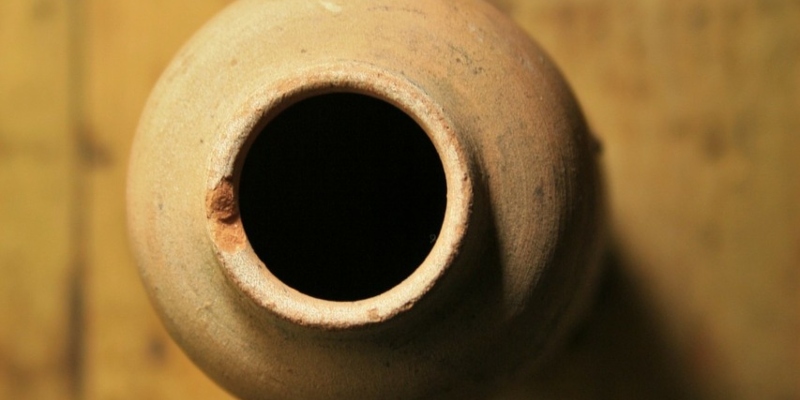A reflection on the anointing at Bethany
We read this story in the light of nurses, chaplains and others who are being present with those who will die... At the beginning of the passion narrative, the unnamed woman is a sign of truth and of hope. By Andy Goodliff

A jar is broken and perfume poured out.
This act of breaking and pouring prefigures Jesus’s own act of breaking bread and
pouring wine the following evening.
That which is whole is broken, that which is full is poured out.
The woman wastes a whole jar of perfume on Jesus.
She wastes it, says Jesus, because she anticipates his death.
This is a preparation for burial.
This is a helpless act — she cannot save Jesus from death —
but it is also a beautiful, excessive act.
It is an act to be remembered and retold.
It is a pastoral act, a compassionate act.
It is also an act of anointing, of honouring the Messiah,
of acknowledging the particular identity of Jesus,
of giving worth to God’s chosen one,
the One who is our suffering servant.
The passion story is a story of disciples fleeing, betraying, denying,
but it begins with a story of a woman
who senses something of Jesus’ fate and comes forward
with grace to bless Jesus.
She steps in, beyond convention, to say to Jesus she knows,
to signal to the others that they need to be attentive to the situation.
Jesus welcomes the care shown to him and his body,
we should not underestimate that this gift shown to him
was a comfort to him, a precious moment in an enveloping darkness.
This woman and her actions embody the gospel,
she reflects the love of God in Jesus
that will see him broken and poured out
in what will be deemed a waste,
the waste of a good man — ‘we had hoped’ (Lk 24.21) —
and it will be his body on the cross we will remember.
This story comes right next to the Last Supper
and together they provide us with a way of looking
at the cross.
The woman’s actions are as much a theological interpretation of the cross
as the actions of Jesus with the bread and the wine.
We read this story today in the light of nurses, chaplains and others
who are being present with those who will die.
They like the unnamed woman,
are performing beautiful acts, costly acts.
They are offering their bodies in service of the ill and dying.
They pouring out in duty and with love acts of blessing.
The word ‘nurse’ means ‘one who nourishes’,
that is they support, they reassure, and sustain.
Stanley Hauerwas describes this as ‘suffering presence.’
Medical staff are being present on our behalf,
giving care to those suffering
at the real risk to their own health.
In this they are naming every life as worthy of honour,
every body deserving to be treated with grace.
And the acts of those doing these beautiful things,
most of whom are unnamed to us,
should be remembered,
and celebrated.
It is appropriate then to be clapping those in the NHS,
not because they are heroes,
but because of their faithfulness to their vocation.
Hero stories are always about themselves,
and what strikes me about those on the ‘frontline’ is
it's not about them, it's about their vocation
and the people they are caring for.
They are ‘offering their bodies as a living sacrifice’ (Rom 12.1)
whether they recognise God’s mercy or not
and God’s mercy is precisely his love for every body
as shown at the cross.
In this time of the virus,[i]
we wonder at this unnamed woman,
who is an example of life in the kingdom,
one shaped by service (Mk 10.43) — her focus is on Jesus,
not herself.
Of course the one she serves comes ultimately not to be served,
but to serve and give his life as a ransom for many (Mk 10.45).
At the beginning of the passion narrative,
she is a sign of truth and of hope.
A sign of truth in that she prepares us for the death of Jesus —
she confronts the reality;
and a sign of hope in that Jesus says the gospel will be proclaimed
and she will be remembered.
In this time of the virus,
we wonder at this unnamed woman,
whose short moment in the story
breaks into our world and pours out love
leaving a question that resounds every year:
what is the beautiful thing we are being called to do?
[i] I borrow this phrase from Ephraim Radner.
Andy Goodliff is minister of Belle Vue Baptist Church, Southend.
Image | PublicDomainPictures |
Pixabay
This is the latest in a series of theological and biblical reflections from Baptists for Holy Week and Easter
Do you have a view? Share your thoughts here.
Baptist Times, 07/04/2020